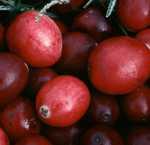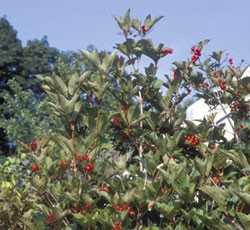LOG IN. UPLOAD PICTURES.
The Philippines has Zambo Mart to help propagate the Chavacano Language.
Cranberry
Herbal Remedies and Medicinal Cures for Diseases, Ailments & Illnesses that afflict Humans and Animals
Aloe Vera •
Astragalus •
Bankoro •
Bilberry •
Bitter Gourd (Ampalaya) •
Bitter Orange •
Black Cohosh •
Cat's Claw •
Chamomile •
Chasteberry •
Coconut •
Cranberry •
Dandelion •
Echinacea •
Ephedra •
European Elder Tree •
Evening Primrose •
Fenugreek •
Feverfew •
Flaxseed •
Garlic •
Ginger •
Ginkgo •
Ginseng (Asian) •
Golden Seal •
Grape Seed •
Green Tea •
Hawthorn •
Hoodia •
Horse Chestnut •
Kava •
Lavender •
Licorice •
Malunggay Moringa Oleifera •
Milk Thistle •
Mistletoe •
Passion Flower •
Peppermint Oil •
Red Clover •
Ringworm Bush (Akapulko) – Cassia alata •
Saw Palmetto •
St. John's Wort •
Tawa Tawa •
Turmeric •
Valerian •
Yohimbe •
accept the bitter to get better
 Cranberry Berries | |||
| |||
 Cranberry Bush | |||
| |||
Cranberry
The medicinal herb Cranberry as an alternative herbal remedy for urinary disorders, diabetes - Cranberries are the fruit of a native plant of North America. These red berries are used in foods and in herbal products. American cranberry bush often develops fall colors of yellow, orange, red, and purple. In spring, it bears wide, flat flower clusters. These lacy flowers have an outer ring of large white florets with many smaller white florets in the center. The clusters of rounded fruit that follow turn from green to yellow-orange to brilliant red in the fall and often hang on the plant through the winter.Common Names--cranberry, American cranberry, bog cranberry
Latin Name--Vaccinium macrocarpon Picture of Cranberry berries Picture of Cranberry Bush
What Cranberry Is Used For
Historically, cranberry fruits and leaves were used for a variety of problems, such as wounds, urinary disorders, diarrhea, diabetes, stomach ailments, and liver problems.
Recently, cranberry products have been used in the hope of preventing or treating urinary tract infections or Helicobacter pylori infections that can lead to stomach ulcers, or to prevent dental plaque. Cranberry has also been reported to have antioxidant and anticancer activity. Herbal remedy for urinary disorders.
How Cranberry Is Used
The berries are used to produce beverages and many other food products, as well as dietary supplements in the form of extracts, teas, and capsules or tablets.
What the Science Says about Cranberry
- Some studies testing cranberry products for their ability to prevent urinary tract infections have shown promise. These studies have generally been small in size, and some were not randomized or controlled; therefore, the results are not conclusive.
- Cranberry products have not been adequately tested to see if they can be used to help treat an existing urinary tract infection.
- Research shows that components found in cranberry may prevent bacteria, such as E. coli, from clinging to the cells along the walls of the urinary tract and causing infection. However, the mechanism of action of cranberry is not fully understood.
- NCCAM, the National Institute of Diabetes and Digestive and Kidney Diseases, and the National Institute for Dental and Craniofacial Research are funding studies to understand whether and how cranberry might work to:
- Prevent urinary tract infection
- Prevent the formation of dental plaque

Side Effects and Cautions about Cranberry
- Eating cranberry products in food amounts appears to be safe, but drinking excessive amounts of juice could cause gastrointestinal upset or diarrhea.
- People who think they have a urinary tract infection should see a health care provider for proper diagnosis and treatment. Cranberry products should not be used to treat infection.
- It is important to inform your health care providers about any herb or dietary supplement you are using, including cranberry. This helps to ensure safe and coordinated care.
News About Cranberry
7 reasons why cranberries are good for you all year round
- By Kate Whiting
Don't forget about cranberries once the Christmas condiments are cleared away. Here's seven reasons to keep them on the menu.
With their deep red hue and vibrant sheen, cranberries certainly look the festive part - and taste particularly delicious in sauce form slathered on turkey - but there's no reason why these juicy fruits should be forgotten about the rest of the year.
In fact, they are bursting with potential health benefits, not to mention being super-versatile too (ever tried baking dried ones into scones?).
Here, experts outline seven reasons to cram in more cranberries ...
1. Bladder health
"Cranberries have been used for centuries by Native Americans to treat urinary tract infections, and there's lots of research being done now to explain why these tart little berries are so bladder friendly," says nutritionist Marilyn Glenville (www.marilynglenville.com).
"The first study to scientifically confirm this health benefit was undertaken in 1994, where women given 300ml of cranberry juice a day were found to suffer less than half the incidence of urinary tract infections as the placebo-ingesting control group. It was originally believed that cranberry juice reduced the symptoms of cystitis by making the urine more acidic - obviously not a desirable effect, as it is the acidic urine that causes the burning sensation. advertisement
"We now know that cranberries work in a completely different way. It seems that certain substances in cranberries can stop bacteria, such as E. coli, from sticking to the walls of the urinary tract. For bacteria to infect your urinary tract, they must first stick to the mucosal (mucous membrane lining) walls of the tract. If they are unable to do so, they cannot multiply and are flushed from the body when you urinate."
2. Immune health
They could help us keep coughs and colds at bay, too, according to Nature's Best nutritionist Keri Filtness (www.naturesbest.co.uk), as they contain nutrients that support immune function. "Cranberries are an excellent source of vitamin C, which can contribute to the normal function of the immune system," says Filtness.
3. Dental health
The same properties that stop bacteria from sticking to the wall of the urinary tract - thought to be antioxidant proanthocyanidins - have been shown to "inhibit the HSV-2 herpes virus, and the Helicobacter pylori bacteria that are increasingly recognised as a leading cause of peptic ulcers and the growth of oral bacteria," says Glenville.
4. Heart health
According to Glenville, "studies have also found that cranberries, which contain high levels of other antioxidant flavonoids and polyphenols, can reduce the risk of atherosclerosis, which is caused by 'bad' LDL cholesterol silting up arteries, reducing blood flow and leading to angina, thrombosis and heart attacks".
5. Allergy busting
Filtness says: "These berries also contain a compound called quercetin, which is thought to reduce inflammation and may help with allergies."
6. Memory and mental health
"Research to come out of the Human Nutrition Research Centre on Aging at Tufts University in the US, suggests that diets rich in foods with high levels of antioxidants and other phytonutrients, such as cranberries, could protect against chronic age-related afflictions," notes Glenville.
7. Skin health
"The antioxidant proanthocyanidins, which give cranberries their distinctive, bright red colour, are thought to support the production, and reduce the breakdown, of collagen, which may have an effect on skin elasticity and strength," says Filtness.











